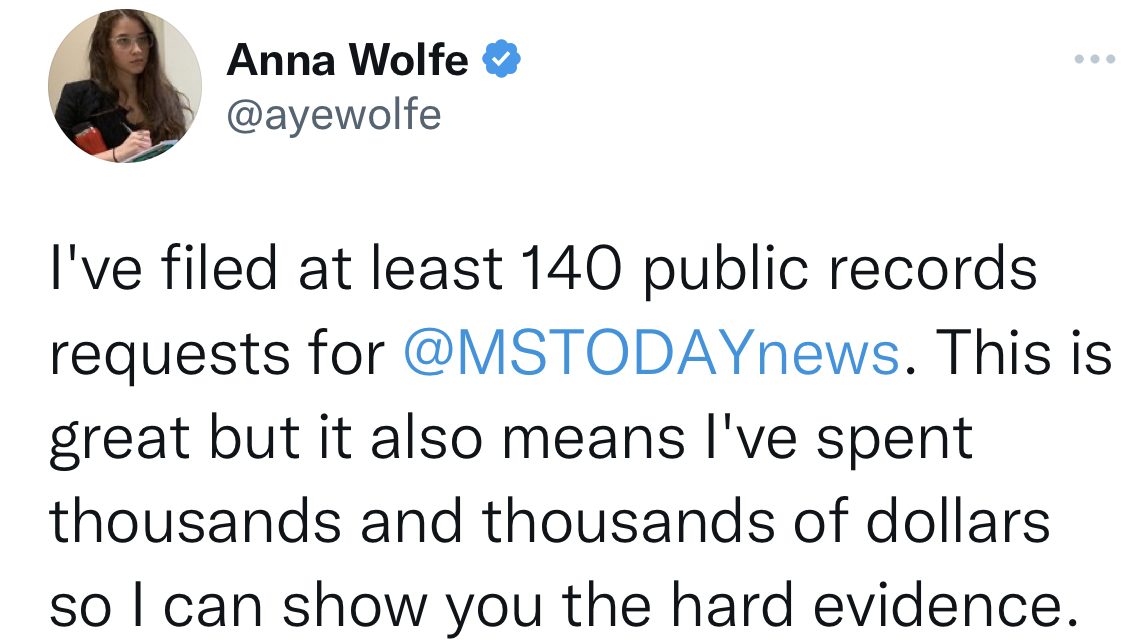Mississippi Today and two other news outlets have allied to oppose former Gov. Phil Bryant’s effort to block the public from viewing emails and text messages that could shed new light on an ongoing investigation involving the misuse of federal welfare dollars.
In a Thursday filing in Hinds County Circuit Court, Mississippi Today, the Daily Journal, and the Mississippi Free Press have moved to protect the public’s right to access government records.
The news organizations, which are represented by the Mississippi Center for Justice and the Center for Constitutional Rights, want to argue before a court that documents relating to communications from Bryant’s time as governor should not be kept secret if they surface in the course of civil lawsuits that are ongoing over the welfare scandal.
“Although these records relate to one of the largest governmental abuses in this State’s recent memory, Bryant seeks to keep them hidden from the public,” argued the news organizations in Friday’s court filing. “The public in Mississippi has an interest in these records and what they could disclose about the scandal.”
READ MORE: The motion filed on behalf of the news outlets
In a joint statement, the editors of the news organizations said that the press has an obligation to fight on behalf of the public’s right to access government records and the correspondence of public officials.
“One of the basic duties of a free press is to hold public officials accountable and ensure that the government remains as open and transparent to the people it serves as possible. We are taking action in court as part of our ongoing efforts to get at the truth of one of the largest public scandals in our state’s history,” said Adam Ganucheau of Mississippi Today, Sam R. Hall of the Daily Journal and Donna Ladd of the Mississippi Free Press.
The state of Mississippi has sued numerous individuals and organizations in an effort to recover welfare funds that were allegedly misspent. Some of the targets of these civil lawsuits have also pleaded guilty in state and federal court to crimes linked to their use of public welfare dollars. None has served time to date.
Bryant has neither been charged criminally nor sued. Still, several defendants in lawsuits have asked him to turn over emails and text messages as part of an effort by those defendants to claim the former governor allegedly directed them to perform unlawful acts.
Bryant has denied these allegations and asked a judge to find that he doesn’t have to provide copies of text messages, emails, and other responsive records. Bryant has selectively released some of his own text messages in a court filing, but does not want to release more, as a pending subpoena could require him to do.
If Judge E. Faye Peterson does force the former governor to turn over more of his communications to the court, he has asked the judge to place them under a protective order that would block the public from examining the documents.
In Thursday’s motion, the three news organizations asked Peterson to allow them to present arguments in opposition to Bryant’s request for a protective order.
“Transparency is the path to meaningful accountability in a functioning democracy, and Mississippians are owed both,” said Vangela M. Wade, president and CEO of the Mississippi Center for Justice. “When reporting on this landmark case, our news outlets should not be prevented from reviewing relevant records created by elected officials while in office.”
Decades of state court cases have upheld the right of the press to step into ongoing litigation where matters of public access are in question, even when a news organization is not a party to that litigation.
Editor’s note: Vangela M. Wade, president and CEO of the Mississippi Center for Justice, is a member of Mississippi Today’s board of directors.



